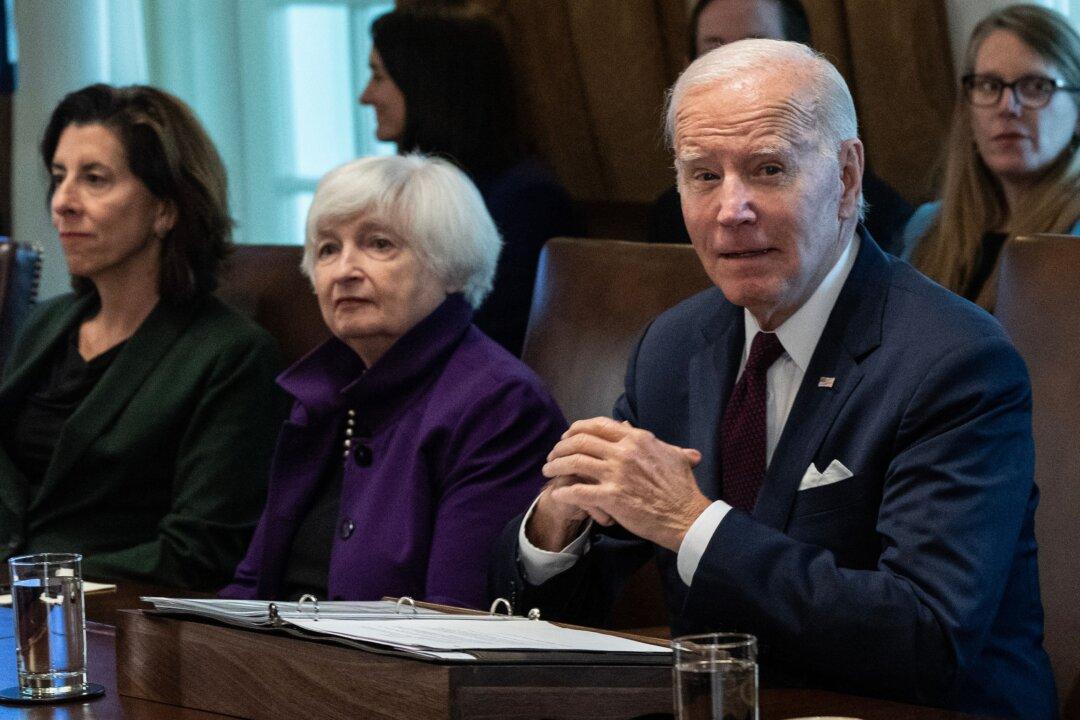Two months after President Joe Biden began pushing “Bidenomics,” Americans haven’t budged on their pessimistic views of the economy, particularly inflation, according to several polls. In fact, it’s led rival candidates to campaign on the promise of reversing Bidenomics policies.
In a poll released on Aug. 7, seven out of 10 respondents say they’ve heard little to nothing about the Inflation Reduction Act (IRA) that Mr. Biden signed one year ago.





